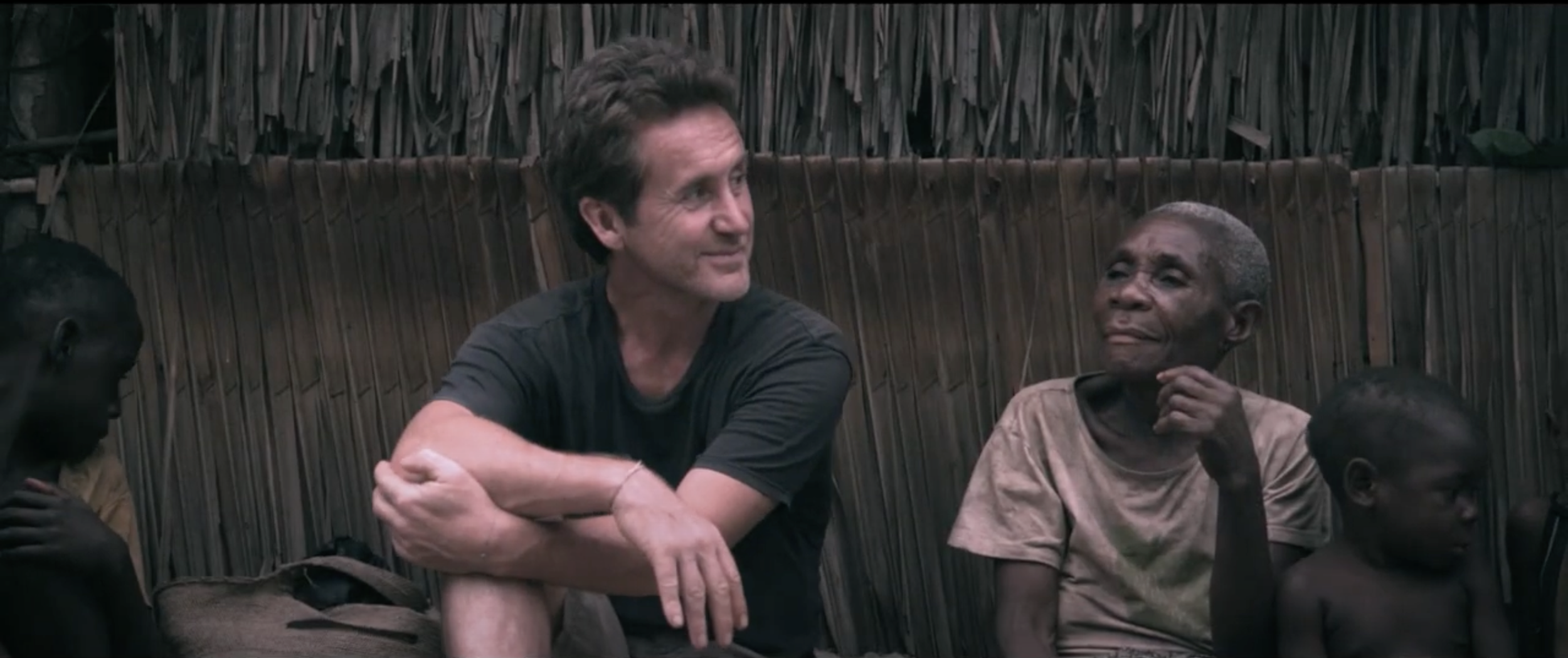"The Master's Tools Will Never Dismantle the Master's House"
Audre Lorde
If the film Tawai invites us to look at ourselves and take responsibility for our behaviour, the featurette, Tawai III - Mbendjele, is a call to action.
The Mbendjele people are from the Congo, and like the Penan, they too are egalitarian immediate-return nomadic hunter gatherers. Jerome Lewis tells us that living in an egalitarian society requires “work on a bunch of levels: political, social and economic”, and our visit to the Mbendjele allows us to observe this constant group effort, working to maintain balance.
Ingrid tells us that they primarily do this through massana, a form of play, dance and song, and sure enough we see the women, young and old, playfully teasing the men. This is a powerful scene to watch, and even more so to experience first hand. This teasing is a formal way of publicly addressing antisocial behaviour within the group. Men who have been aggressive, disrespectful or even lazy lovers are playfully, humorously, but assertively, held to account by the women in the communal space.
What is fascinating about this ritual is the way it reveals how the women challenge the behaviour of the men. Rather than entering into a combative space, they embody their own quality of collective power, expressed through potent laughter, song and sexuality. But the women choose not to hold centre stage for too long, as this is an egalitarian society, and not a hierarchical matriarchy. They believe that to hold the power for too long could lead to resentment, so they willingly allow space for the men to have their turn, through their ritual called Ejengi.
The Mbendjele men tell us that Ejengi takes us back to the “roots of life”, to “the beginning of the world”. Jerome interprets this ritual to be in accordance with theories of how humanity overcame its hierarchical primate heritage, and instituted a trust-based, egalitarian society in its place. A setting that enabled language and culture to evolve. During the ritual reenactment, through song and dance, Ejengi seems to symbolise the alpha male, whose reproductive dominance our female ancestors rejected, simultaneously inviting the other men to join them. This invitation by the women, the Mbendjele say, established society as they live it today. Men and women continue to work together to banish the tendencies of the hoarding, competitive, aggressive male spirit, so that all can live together as equals. If this is the case, this ritual echoes up through the ages to remind us of the most incredible achievement of human history - when competitive, hierarchical groups dominated by aggressive males were successfully replaced by societies of equals.
There is more richness and complexity in these ideas than any I have encountered before, and expressing them well is far from easy. Beliefs around sexual identity and the differences, qualities and roles of sex and gender are evolving, and it is certainly not for me to say what, if any, the roles of men and women or the qualities of the masculine or feminine might or should ever be. But having seen the way the women of the Mbendjele powerfully hold themselves at the centre of their society - together, in solidarity - affirming their voice within the community, I felt that I was witnessing something very important, that needed to be shared. For me, sitting there, experiencing the potent strength and freedom of those women, asserting themselves as they wished to, in their own way, I was blown away - and I discovered a feeling which continues to grow today… hope.
Bruce Parry

